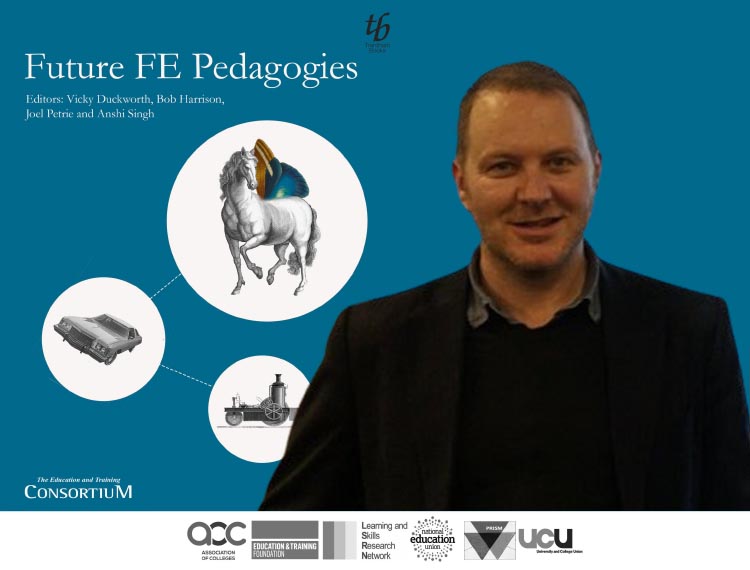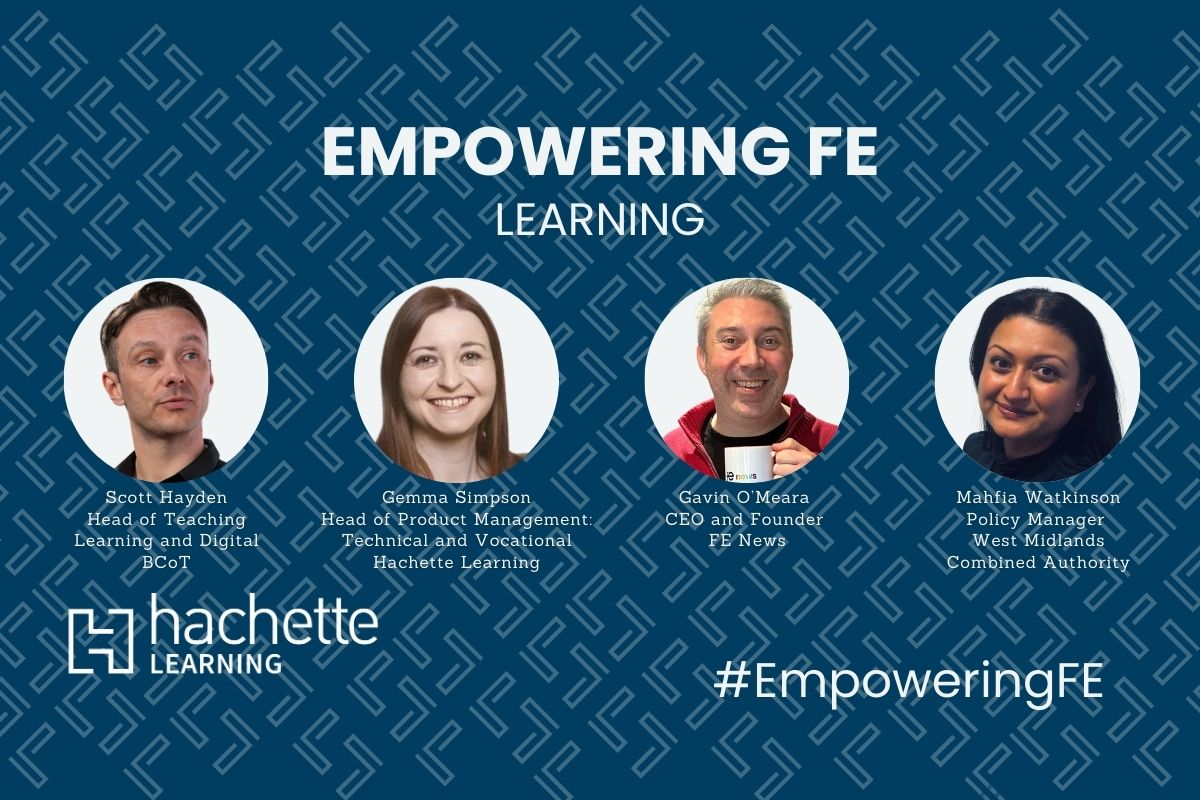The Proverbs of Technology Enhanced Learning – FE must rise to the new challenges presented it

This document is designed to stimulate a provocation around the subject of technologies in teaching and learning, drawing in pedagogical, sociological, and philosophical implications.
Like learning and education itself, it has no clear beginning or ending and is purposefully disconnected in order that meaning be constructed in a non-linear disorganised derangement of normal convention.
It is presented as a set of aphorisms and maxims, which may be rejected or agreed with ultimately and ideally stimulate discourse. It is indisputably clear that technology improves the learning experience and no argument for or against that is being made.
It is also abundantly understood “….that technology is not just a neutral delivery vehicle” and that there are numerous structures and contradictions involved in these new normals.
Preparing the workforce and colleges for a digital future
FE should potentially have been well placed to cope with current circumstances, given the pervasive influence of the FELTAG report that sought to prepare the workforce and colleges for a digital future.
Disruption is the mother of innovation. There are some in education who misunderstand or have scorned the use of technology, but if the teacher persists in creativity, the teacher becomes inventive.
Rejecting technology’s role in the learning experience is like swimming with an arm tied behind your back. Denying its function is to pretend the arm is not even there.
The Gutenberg Press influenced our systems of writing, moulded our very use of language, our ways of seeing and sense of meaning about the world &etc. Our perceptions, reading and understanding of life were radically and irreversibly encoded by a machine, which showed how the medium was at least the equal of the message.
Technology has the potential to shape our practice, but also to confront what education is and can be.
If nothing else technologies force us to re-evaluate the classroom as an environment and the relationships within it.
The online social world develops communication, participation and identity, but these networks should not be tickets for a world that continues to be oppressive. A refusal to converge and interact is often a gesture of beautiful resistance.
The modern world has rapidly become a set of systems that are often fluid, insecure, confused and perplexing to navigate. Technologies may help young people to make meaning of it all and it is the responsibility of educators to utilise these tools.
It’s probable that the disruption of this present moment will continue in a semi-permanent state; the superabundance of information can saturate without process: studying is not a consumer activity and requires actions. Technology provides agency by enabling students to act upon the wider world. FE providers must make this and wider social interaction as a bedrock of online learning.
Tune in, turn on and switch off is the maxim of social media. Any modern teaching and learning conversation needs to interrogate the online ontology of passive consumption.
The ‘walled garden’ VLEs that FE institutions invest in bear no reflection of life in the real world and are a futile exercise yard of administration. Teachers use them, because institutions pay for them; institutions pay for them, because data is digital gold; shrewd students inherently distrust the mechanics of them that have caged us in a Panopticon of self-surveillance.
The VLE is not an environment conducive to spirited learning and more like a series of infinite corridors and doors. To each domain, there is a gatekeeper and an eye.
The new environments and landscapes deserve an entirely new language and imagination for teaching and learning and the relationships at play.
But where we consider what is added and augmented by technology, we also must consider what is lost, as related by Mary Newbold in a Tweet from the pandemic:
Let us not so much as contemplate this next level of alienation. Learning is a shared, social experience that involves the whole corporeal sensorium. We are more than minds; this is what makes us distinct from the technologies that have become an extension of ourselves. https://t.co/sZe4hjmkxp
— Mary Newbold (@Mary__Newbold) May 3, 2020
While distance learning can be done, we should never underestimate the importance of physical environments for students – and more importantly we must not allow politicians to traduce what we have with further funding cuts, closures or by selling land and assets under the justification of distance learning. We can have both.
While technology can improve access and peer learning, it must not become a sterile mass without personalisation.
It is not in the realm of paranoia to imagine that conniving politicians (who do not understand teaching and learning or the peripheral participants of FE’s student body) would replace all FE’s teachers with scripts, batches of resources and automated ‘click and go’ DIY training.
Consider the last online training you did. Was it worthy, was it soulful, did it nourish your creativity, did you connect with others and learn incidental matters of existential significance along the way, or was it used to cut corners?
If some parts of a subject are not replicable in a technologically dynamic and humanely participatory form, then it is the curricula itself that needs change.
Technologies can de-territorialise the curriculum and learning terrain from many of its present constraints and there is no one there, currently, using such tools of conviviality to ensure teachers are complicit to standardisation or students are emasculated. Teachers have an opportunity to teach with autonomy if they are given the confidence, but it requires a big push in training to teach online well.
It is no surprise to see unimaginative educators use the pandemic crisis to endorse rote memorisation through technology at the cost of a social online experience.
Should we be teaching new knowledge via home learning? @daisychristo says we need to use this opportunity for revision, retrieval and spaced repetition to consolidate the learning in the short term, and that this will show how much of a role repetition has in the long term!
— Kaley Macis-Riley (@HoDandHeart) April 1, 2020
It is much easier to do repetition than socialism, play or creativity.
The first task is ambience and then imagination. Just as the classroom, students don’t come online for repetition but diversion, the ludic and the unexpected.
How is it possible for technology to simulate the real world when the real world itself is artificial, flawed or contains inherent social inequalities that technologies must not use their users to reproduce?
Inherent paradoxes govern online behaviours:
- Autonomy, but governance
- A window to a world of diversity, but reflexive impotence
- Visibility, but surveillance
- Empowerment, but subservience
- Individualism, yet conformity
‘The cut worm forgives the plough’, but a student who walks into the world unprepared and unequipped to challenge and change it will never forgive his teachers.
FE must rise to the new challenges presented it.
Howard Scott, Senior Lecturer in Post Compulsory Education, University of Wolverhampton
Future FE Pedagogies – Vol 1 |
||
|
The Future FE Pedagogies journal was categorically not intended to be a ‘how to improve your e-learning skills’ guide – there are professional associations, websites and online materials fulfilling this function already. Rather, we aimed to provide for time poor colleagues a series of think pieces: nuanced analyses of the potentialities and challenges of TEL for our practice. |
||
| @AoCDavidH | ||
| @BobHarrisonEdu | ||
| @DrMattOLeary | ||
|
Free, easy and fit for purpose TEL: lessons learned the hard way by a non IT whizz |
Martin Compton |
@Mart_Compton |
|
Matt Gordon & Jan Calvert |
@mattgordonwfc @jancalvert |
|
| @eddieplayfair | ||
|
Ways of Engaging: some approaches to developing learning skills |
@duckett_ian | |
|
Howard Scott |
@HowardScott75 | |
|
Digital Practitioners creating “artfully-crafted, student-centred, learning experiences” |
Nigel Ecclesfield & Fred Garnett |
|
|
Moving a class online |
Dave Cheseldine |
|
|
The Reality of FE TEL Post-Covid-19: Thoughts from the bike by an FE Teacher Educator |
Jamie Heywood |
|
|
An open letter to the Secretary of State for Education: preparing FES teachers and trainers to ‘teach well’ in a digital world |
David Powell |
|
|
Conclusion |
Vikki Liogier |
|










Responses